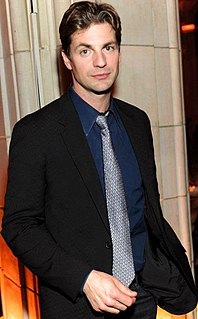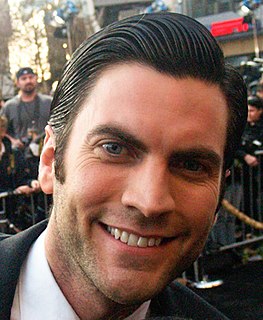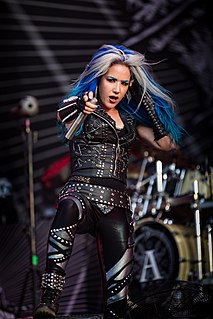A Quote by Tom Stoppard
If you let the plot be determined by what you feel is in the character's mind at that point, it may not turn out to be a very good play, but at least it will be a play where people are behaving in a kind of truthful way.
Related Quotes
Nothing can alter the character of God. In the course of a human life, tastes and outlook and temper may change radically: a kind, equable man may turn bitter and crotchety: a man of good-will may grow cynical and callous. But nothing of this sort happens to the Creator. He never becomes less truthful, or merciful, or just, or good, than He used to be.
Brian is an archetypal character, a bit like Don Juan, which is how I play him. He's a blast to play. He believes unapologetically in his freedom. He holds nothing back. Something I'm learning is, you can't hate the character you play. If I think my character is an asshole, that's all that will come across. He is drawn in an extreme way, but that doesn't mean he's not a person.
I think, when people so strongly associate an actor with a character they play - but the main feeling is I feel very happy that I've been able to play somebody that people connect so strongly to. That's overall a very good feeling. There's the sweet and the sour, I guess. It does sting a little bit. Your insecurity as an actor maybe seeps in, but ultimately I think it's a very lovely thing. It doesn't happen that often. It's mostly good, I'm fine with it.
I was doing this children's theater play, and it was non-Equity. We were out of town to do it at the Kennedy Center, and it was always kind of, 'Well, the producers may have to turn this into Equity,' and that's what happened. It was kind of a silly children's theater play, but that's how I got my card.
The writer must always leave room for the characters to grow and change. If you move your characters from plot point to plot point, like painting by the numbers, they often remain stick figures. They will never take on a life of their own. The most exciting thing is when you find a character doing something surprising or unplanned. Like a character saying to me: ‘Hey, Richard, you may think I work for you, but I don’t. I’m my own person.’
People are going to say, ‘Well, it’s not very truthful.’ But a songwriter doesn’t care about what’s truthful. What he cares about is what should’ve happened, what could’ve happened. That’s its own kind of truth. It’s like people who read Shakespeare plays, but they never see a Shakespeare play. I think they just use his name.
An idea is like a play. It needs a good producer and a good promoter even if it is a masterpiece. Otherwise the play may never open; or it may open but, for a lack of an audience, close after a week. Similarly, an idea will not move from the fringes to the mainstream simply because it is good; it must be skillfully marketed before it will actually shift people's perceptions and behavior.
Game Over is a very frustrating game convention. In short, it means, 'If you were not good enough or did not play the game the way the designer intended you to play, you should play again until you do it right.' What kind of story could a writer tell where the characters could play the same scene ten times until the outcome is right?




































